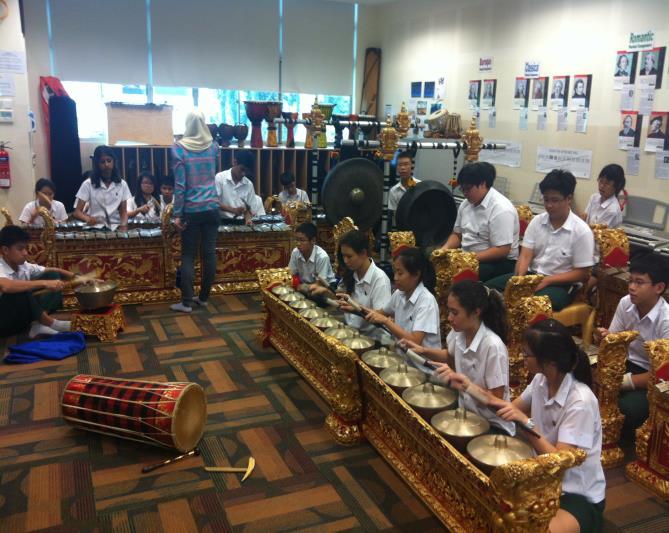
4 minute read
Geography
What is the nature of Geography in Grades 7 and 8?
Geography is the subject that more than any other prepares our students to become big picture thinkers, unafraid to engage with important questions and the issues we face in our world. It takes a highly diverse and developed skill set to be a real world problem solver, and through our dynamic teaching style, contemporary curriculum and broad range of assessment styles we are able to raise standards and create a buzz of pupil engagement and motivation.
Advertisement
All the necessary thinking skills can be taught explicitly through geography, though some are more fundamental than others to learning in the subject. Information- processing skills are essential to enable pupils to select and use sources that help make sense of their world at various scales. As geographical enquiry is central to independent learning in the subject, enquiry skills and decision making are taught explicitly and progressively through Grades 7 and 8 and students are encouraged to develop theirown questions and investigations.
Pupils need to be able to reason across all aspects of the subject if they are to explain human and physical patterns and processes and how these interact to bring about change in places and environments. They also need to think critically to evaluate the importance of different stakeholders and sources of evidence that they use in their enquiries. Creative thinking is explored often in lessons and offers great potential for developing Geographers capable of creating innovative solutions that are based not just on evidence and fact, but on empathy and the ability to make the right choices for managing our world sustainably.
What is the approach to learning in Geography?
Whilst Geography requires a wide selection of functional skills, fundamental to our teaching and students learning are the SMILES values of Internationalism and mutual respect. The physical world cannot be disassociated from our spiritual and ethical minds, so whilst we embed practical and cognitive skills in the learning that takes place we challenge our students to become world citizens. To give them a sense of awe and wonder and tread carefully in the global landscape.
We believe that information processing is fundamental to learning geography. Pupils need to be able to select and use skills, information and sources of evidence across the programme of study. Reasoning skills are also necessary to enable pupils to give reasons for opinions and actions, to draw inferences and make deductions, to use precise language to explain what they think and to make judgements and decisions informed by reason or evidence. Reasoning is an essential element of enquiry-based learning and decision-making in geography because pupils need to draw substantiated conclusions about their findings or opinions. They are also explicitly taught to explain human and physical geographical processes and the interactions between them.
Enquiry skills enable pupils to ask relevant questions, to pose and define problems, to plan what to do and how to research, to predict outcomes and anticipate consequences and to test conclusions and improve ideas. The process of enquiry is at the heart of geographical learning. Pupils need to become increasingly independent in their use of enquiry skills across Grades 7 and 8.
Creative-thinking skills enable pupils to generate and extend ideas, to suggest hypotheses, to apply imagination and to look for alternative innovative outcomes. Geography provides opportunities for pupils to think imaginatively and sensitively about people’s views and opinions. It provides scope for them to investigate and present ideas and information in innovative ways. Finally, evaluation skills enable pupils to evaluate information, to judge the value of what they read, hear and do, to develop criteria for judging the value of their own and others’ work or ideas and to have confidence in their judgements.
Students in geography also have the opportunity to learn outside of the classroom as the department offers field trips in both grades. These are an ideal situation for interactive learning. Student in Grades 7 and 8 are not given specific textbooks. This is because the range of topics (shown below) is not found in any one textbook and the department have created their own resources that are specific to the Geography of the region and high achieving students. For the purpose of revision, all of which can be found on Teamie.
What is the subject content?
The topics of study in Grades 7 and 8 aim to provide a subject knowledge of events and themes from around the world which is broad enough to gain a solid foundation and also build a background for the study of Geography at IGCSE.
Grade 7
Grade 8 Service Learning –Development in Indonesia
Energy & Climate Change Geographical Skills
Globalisation Tectonics
Oceans and Coasts Rivers and Flooding
Settlement and Urban Challenges
What is the nature of assessment?
Students are reported using standards based assessment. They are assessed formatively and summatively. Formative assessments are done as each topic is taught (this may be done as project or presentation work) and students are given the necessary assessment criteria to enable them to reach the highest of attainment levels. As progression is tracked, the necessary skills and assessments all help to point the students in the direction of IGCSE & IB Learner profile. The assessments enable teachers, students and parents to see how progression is made in:
Conceptual knowledge and understanding - Students are able to demonstrate knowledge and understanding of geographical concepts related to the units Geographical enquiry - Students are able to design enquiries; collect and record data; process and interpret data; evaluate sources used and methods Geographical communication - Students are able to communicate effectively both verbally and in writing; including effective presentation of data and use of statistics to help show patterns and summarise information Map skills - Students are able to read and interpret maps and use them to support their learning.



